Same-sex marriage and the paradox of Australia's PM
- Published
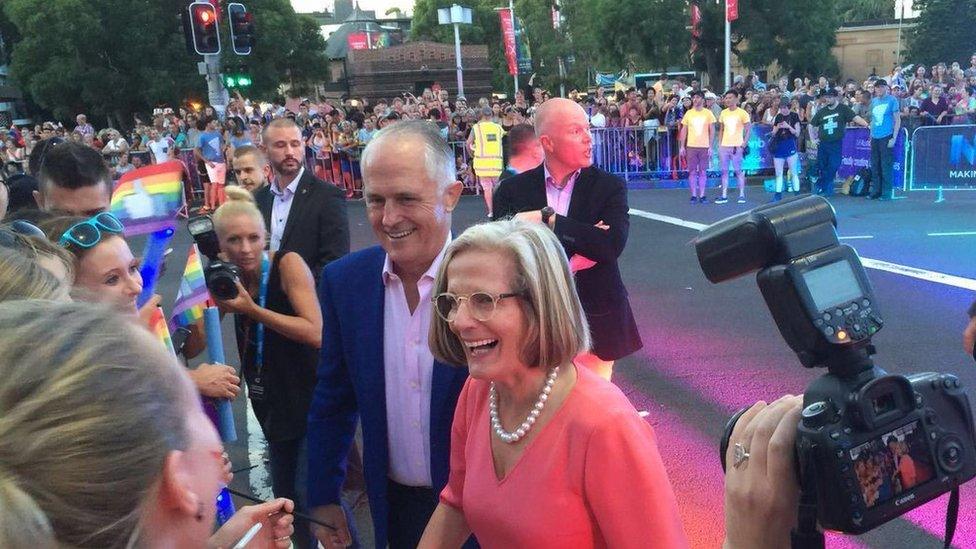
Prime Minister Malcolm Turnbull and his wife, Lucy, at the Sydney Gay and Lesbian Mardi Gras
Australia's prime minister has long supported same-sex marriage, but does he possess the influence - or the will - to make it happen? The BBC's Greg Dunlop investigates.
When Malcolm Turnbull ascended to power in 2015, many Australians hoped the new prime minister would take action to legalise same-sex marriage.
A year to the day later, he introduced a parliamentary proposal for a national vote. The bill was ultimately doomed to fail.
Mr Turnbull had inherited the plebiscite idea from his predecessor, Tony Abbott, and it faced opposition from the start. Those people argued the vote was unnecessary, expensive and would expose gay and lesbian couples to abuse. They wanted a free vote in parliament.
But the new leader enshrined the plebiscite as an election pledge, aware changing tack would divide his conservative party.
"It is an issue of conscience for millions of Australians," Mr Turnbull would later say in defence of the bill. "From the bottom of my heart - our society would be stronger if more people were married."
In August, a survey of 5,500 LGBT Australians by lobby group Just Equal found that 85% opposed holding the referendum. Three months later, the bill was defeated in the Senate.
What next?
In March, Mr Turnbull became the first sitting prime minister to attend Sydney's famous Gay and Lesbian Mardi Gras, held in his eastern suburbs seat of Wentworth.
He had been many times before. But just days after the plebiscite defeat, Mardi Gras organisers passed a motion declaring he was "not welcome" at next year's event.
"We wanted to express our disgust at his prime ministership as a community and to say that we don't need his phony friendship," explained Cat Rose, who put forward the motion.
But Alex Greenwich, Australian Marriage Equality chairman, is concerned the debate is becoming a "political football".
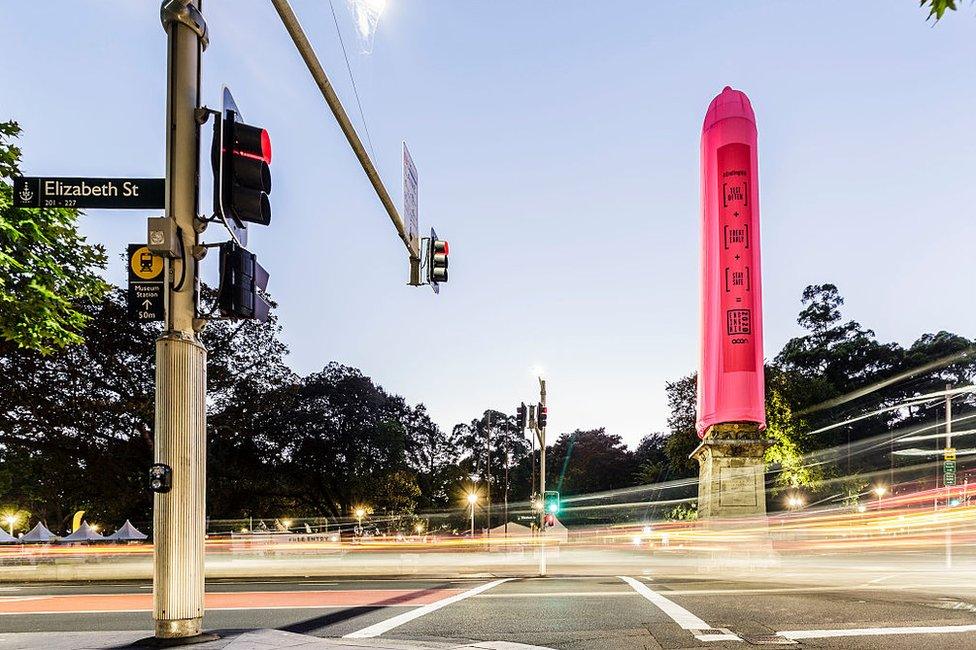
An 18m (59ft) pink condom slipped onto Sydney's Hyde Park obelisk for the Mardi Gras
"This has been a particularly tough and frustrating time for the gay and lesbian community," he tells the BBC.
"Tony Abbott was not a prime minister that supported marriage equality. We now have one that does. Both supported the policy of a plebiscite. Now that it's behind us we're hoping that we can work with the government to the point where enough (parliament) members can vote freely, and according to their conscience, so that we can finally achieve marriage equality."
Successive polls have shown a majority of Australians support same-sex marriage. The Labor opposition now wants it, but Mr Turnbull's party is divided.
However, Antony Green, the Australian Broadcasting Corporations's election analyst, says predicting the plebiscite result would have been tricky.
"The important thing to remember is that in Australia, voting is compulsory," he says.
"The view is that people who haven't really thought about the issue tend to vote for the status quo and against change."
With only a one-seat majority in parliament, Mr Turnbull has little room to manoeuvre.
According to reports, external, government backbenchers are now discussing ways of resolving the issue before the next federal election.

Opinion polls show the majority of Australians support same-sex marriage
A parliamentary vote is said to be among the proposed solutions.
But on Sunday, Mr Abbott warned Mr Turnbull the party would not allow this - citing Donald Trump's rise as proof people were "sick and tired" of governments changing their word.
"It was a very fundamental commitment that we gave to the people at the last election," Mr Abbott told Sky News.
'Hamstrung' PM
Malcolm Turnbull has arguably the nation's most impressive resume, having already been a Rhodes Scholar, millionaire investment banker, personal adviser to media tycoon Kerry Packer, barrister in the Spycatcher legal battle, external and leader of the Australian republican movement.
But that might be part of the problem, according to Don Watson, an Australian author and former political speechwriter. He believes the prime minister's views may reflect his position in Sydney society more than a considered political doctrine.
"We thought Malcolm Turnbull might bring his rather more enlightened or realistic social philosophy to the job, but it seems he is seriously hamstrung by the opinions within his party," he says.
"Maybe we had it wrong - he's not a 'small l' liberal at all. He's a very pragmatic person. First and foremost he's a merchant banker and a lawyer. He's done tremendously well out of the neoliberal philosophy and that's fine. But I don't think it's brought what you need to be prime minister."
Author and political commentator George Megalogenis believes Mr Turnbull is more likely to pursue issues his party agrees on - such as the economy - than same-sex marriage.
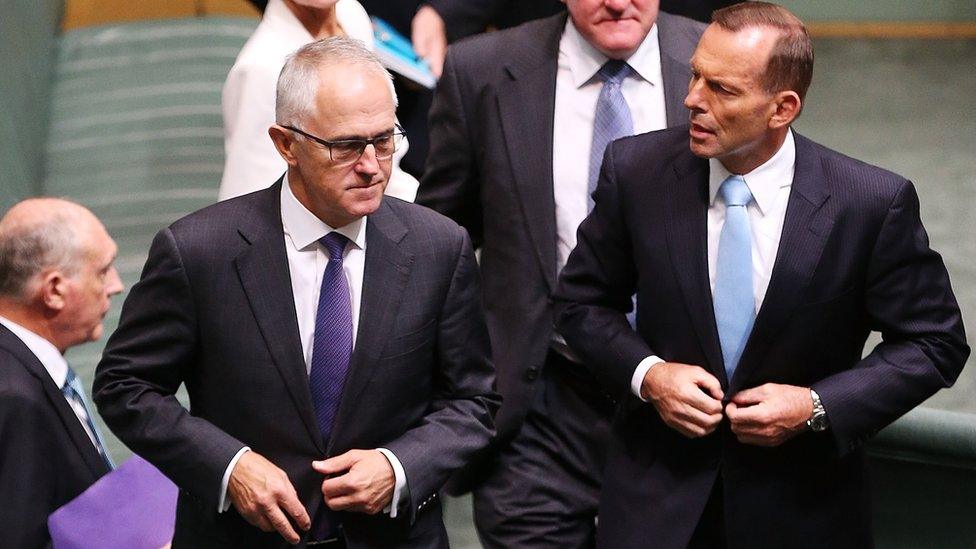
Tony Abbott, right, has warned Malcolm Turnbull not to change policy
"I imagine for him the priority would be to get a budget put together and try and get that through a very difficult Senate. I'm not sure same-sex marriage is a fight he'd want to take on now, not withstanding his personal views," Mr Megalogenis says.
"Same-sex marriage seems to be something that Labor wants to push because they know it will divide the government."
Is Mr Turnbull willing to risk that?
Don Watson says establishing legitimacy within caucus and the electorate is a challenge for any prime minister. It's never immediate.
He says the prime minister must pray for two things: "He needs luck and he needs time."


- Published12 November 2016
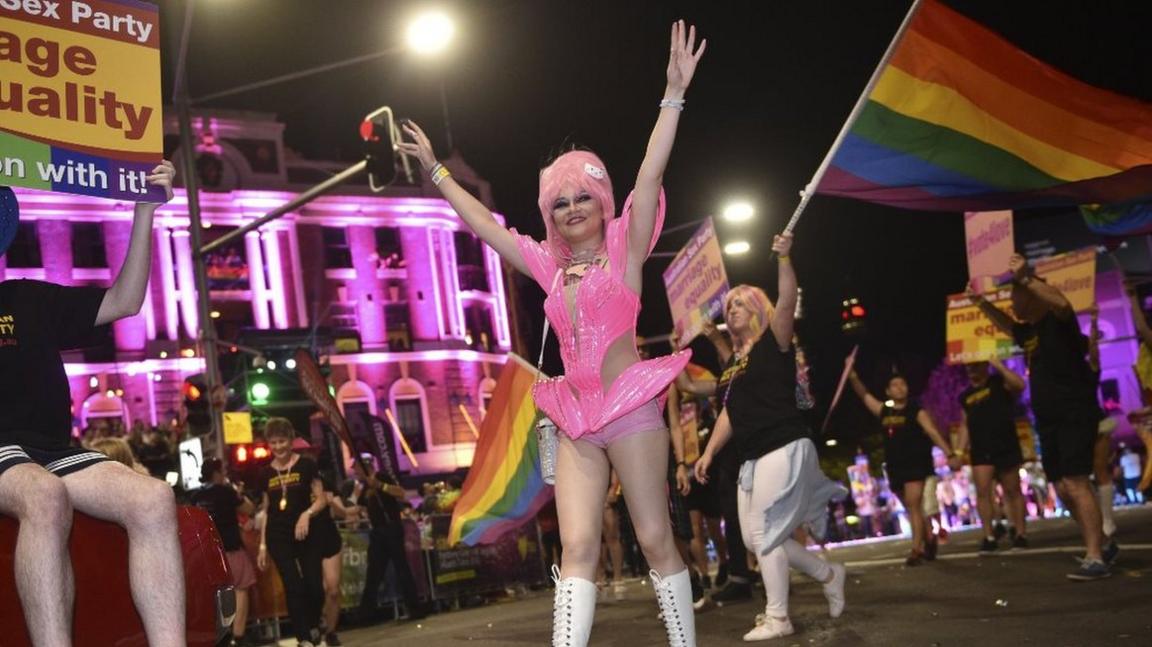
- Published7 November 2016
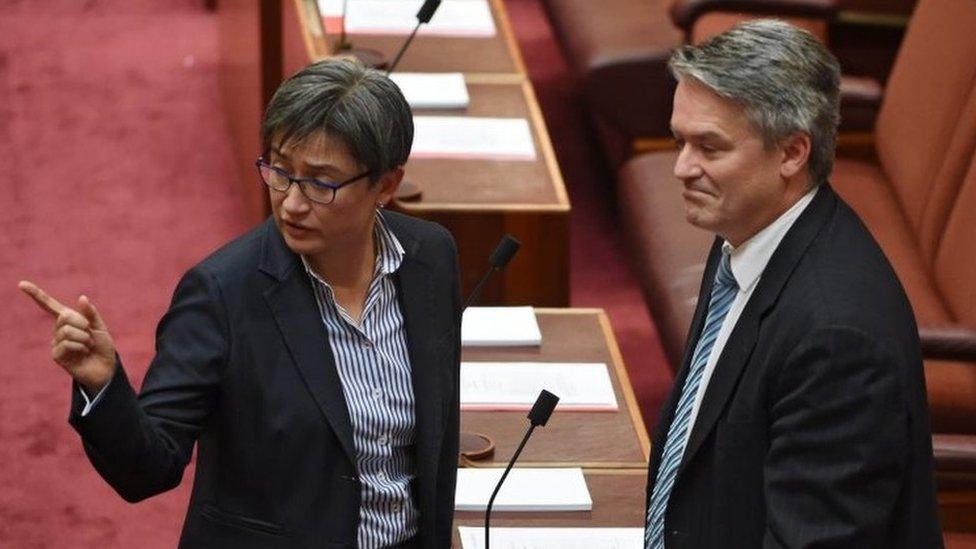
- Published12 October 2016
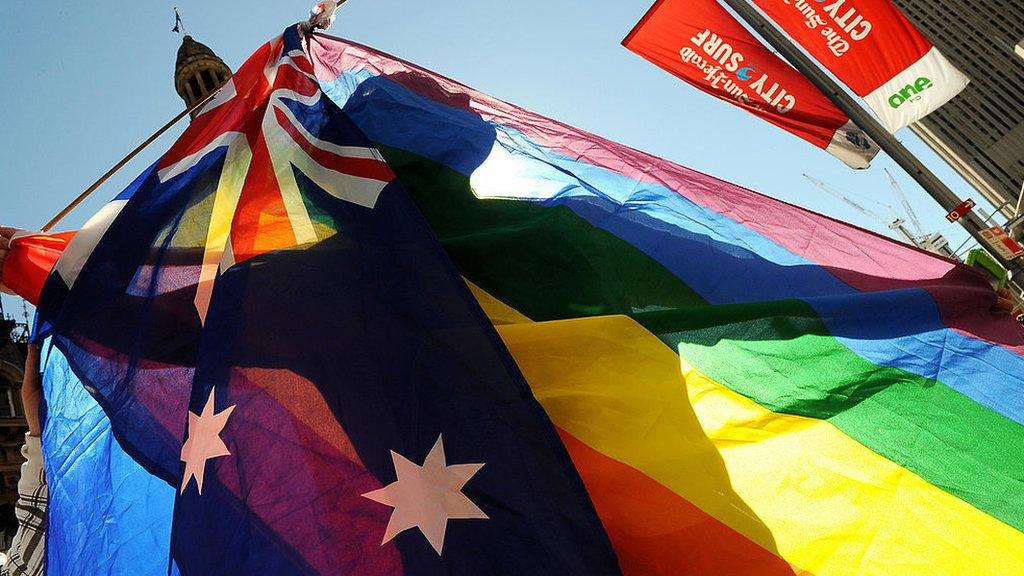
- Published11 October 2016
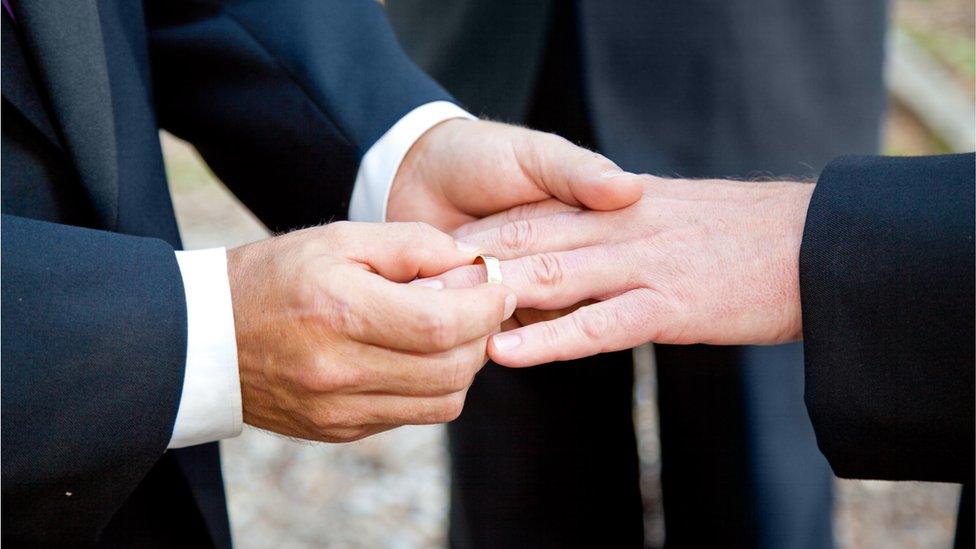
- Published6 October 2016
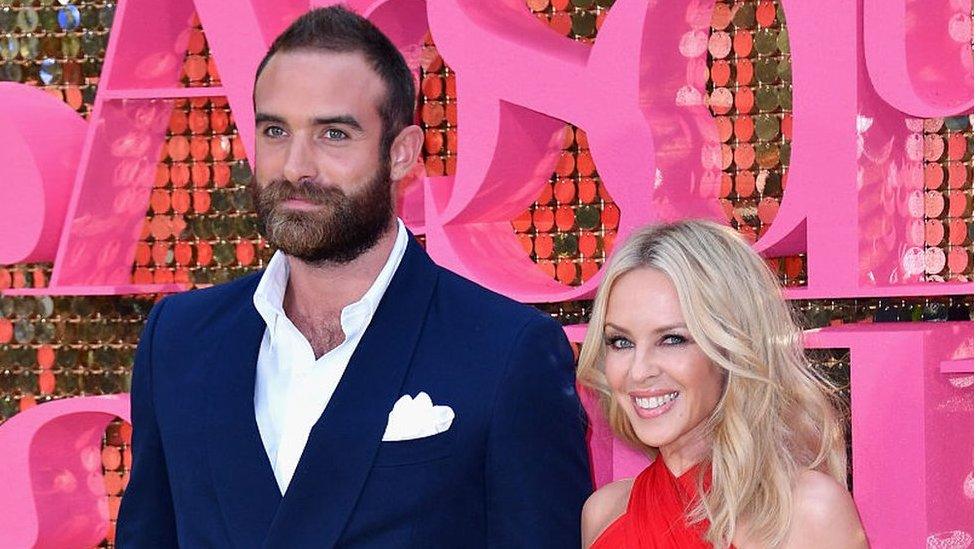
- Published29 June 2016
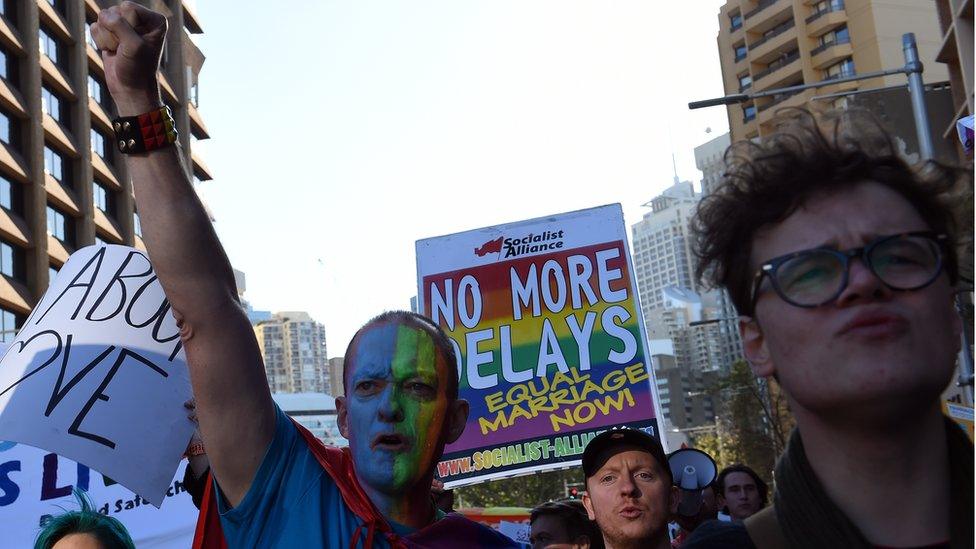
- Published8 May 2015
